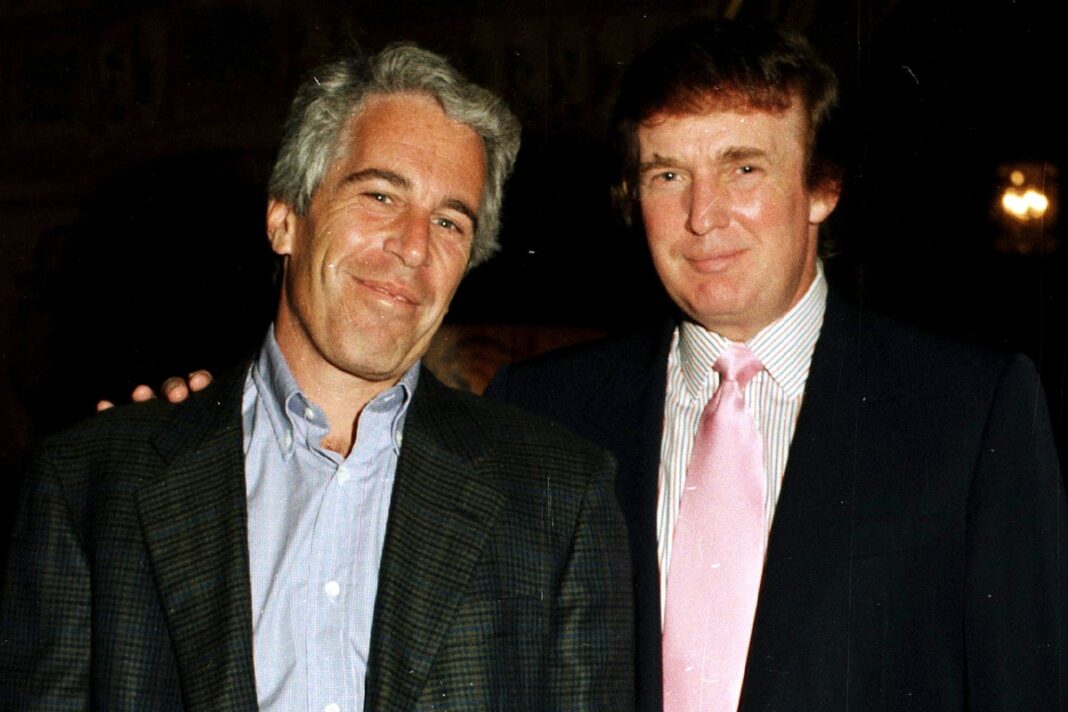The Political Landscape of November 2025: Key Developments in Congress
In recent days, the political arena has witnessed some significant events worth delving into, particularly concerning the ongoing discussions surrounding the late Jeffrey Epstein and the implications for newly elected officials like Adelita Grijalva. Here’s a detailed look at the unfolding narratives.
Delay in Swearing-In: A Political Controversy
Adelita Grijalva, a newly elected Representative from Arizona, has experienced an unprecedented delay in her swearing-in ceremony, which lasted a staggering 50 days. Grijalva voiced her frustration during an appearance on MSNBC, advocating for legislative action to ensure that no other elected official has to endure a similar wait in the future. She articulated the urgency of passing bipartisan legislation on this matter, highlighting the troubling precedent set by House Speaker Mike Johnson. “What’s it going to be next time? Months? Where you just sit in limbo and are not able to do your job?” she questioned.
This delay and Grijalva’s subsequent outcry have reignited debates regarding transparency in the legislative process and the consequences of political maneuvering.
Mike Johnson’s Response
House Speaker Mike Johnson, who oversaw the swearing-in delay, attempted to alleviate concerns by asserting that the situation was “nothing personal.” However, Grijalva countered with her interpretation, stating, “It sure did feel personal.” The tension between Johnson and Grijalva illustrates the undercurrents of distrust that can characterize political interactions, especially when one’s position may affect broader legislative agendas.
Release of Epstein Files: A Closer Look
Amidst these developments, the discourse surrounding the discharge petition aimed at forcing a vote on Jeffrey Epstein’s files has garnered considerable attention. House Speaker Mike Johnson dismissed the petition as a “moot point,” suggesting that the White House’s efforts to suppress it were unnecessary. This assertion contradicts the sentiments of Congressman Thomas Massie, who, along with Representative Ro Khanna, is leading the charge for transparency in the matter. Massie emphasized that the pursuit of information regarding Epstein’s network is crucial, insisting that it should not be deemed a futile exercise.
Diverse Opinions on Transparency
Marjorie Taylor Greene, a Republican from Georgia, has candidly expressed her support for the release of the Epstein files, framing it as a moral imperative. Greene emphasized that “Americans deserve transparency,” pointing to the victims who have been affected by Epstein’s actions. Her endorsement adds a layer of complexity to the bipartisan dialogue surrounding the issue, as different factions weigh the balance between accountability and political ramifications.
Newly Released Emails from Epstein’s Estate
Recent developments include the release of emails from Epstein’s estate by Democrats on the House Oversight Committee. These communications reportedly touch upon notable political figures, including former President Donald Trump, who had maintained a friendship with Epstein years prior to Epstein’s conviction. Despite this connection, Trump has not been formally accused of wrongdoing. The resurfacing of these emails underscores the deep connections Epstein had within Washington, further complicating the existing political landscape.
Government Shutdown: The Broader Context
In related news, former President Trump has signed a bill to end what had been described as the longest government shutdown in history, which significantly disrupted services such as air travel and food benefits for millions. Trump characterized the shutdown as the result of “extremist” Democrats using it as a political tool. This situation not only highlights the complexities of partisan politics but also strains already fraught relationships within Congress, particularly regarding issues surrounding Epstein and governmental accountability.
Grijalva’s Call for Change
In light of her struggles and the political climate, Grijalva remains determined to push for reform. She has described her experience as catalyzing a necessary dialogue regarding the need for improved processes within the government. Her advocacy for legislation that would prevent such organizational delays showcases a commitment to both accountability and efficiency in Congress.
The Implications for the Future
The events of November 2025, particularly the discussion surrounding the Epstein files and Grijalva’s fight against legislative delays, illustrate the intricate interplay of personal, political, and ethical considerations in Congress. As more details emerge and debates continue to unfold, the dynamics of transparency, accountability, and partisanship will undoubtedly shape the political landscape moving forward.



